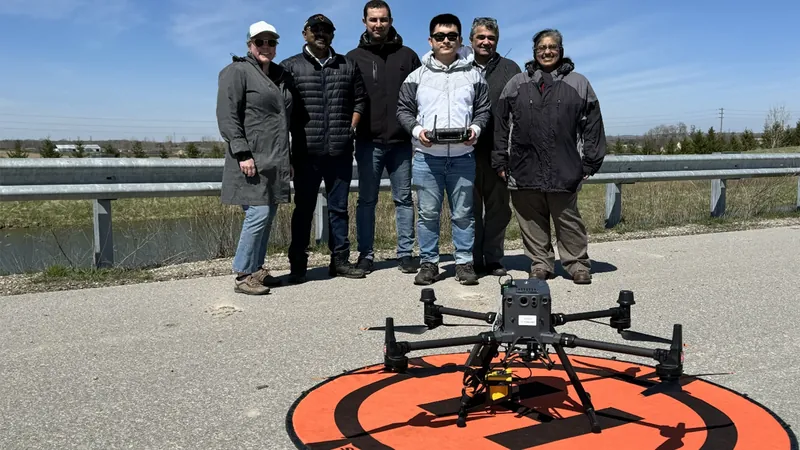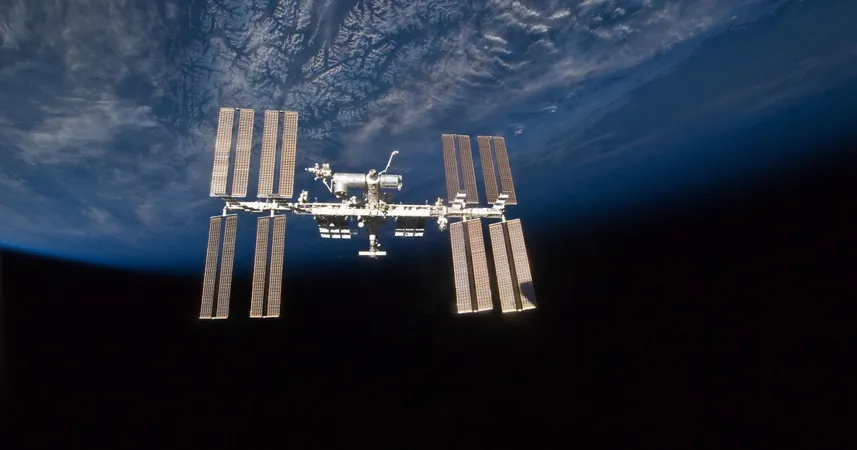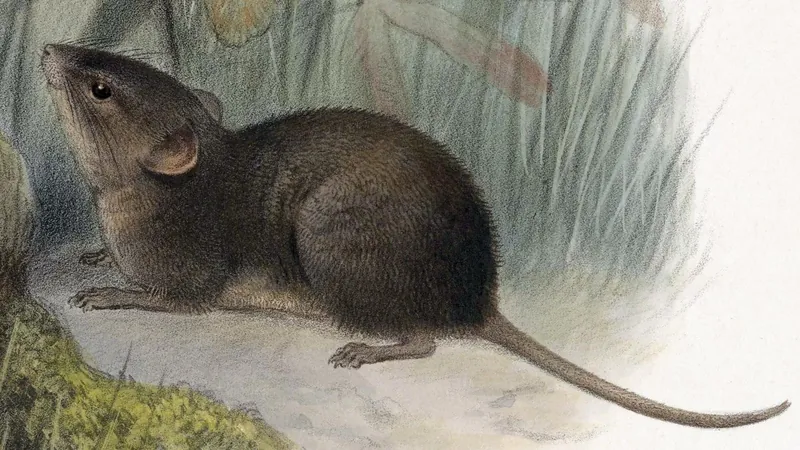
Unlocking the Universe: How Western Space is Pioneering Solutions to Global Challenges
2024-11-18
Author: Sophie
Introduction
In an exclusive interview, we had the privilege to speak with Dr. Sarah Gallagher, the visionary Director of Western Space at Western University in Ontario, Canada. With an interdisciplinary approach at its core, Western Space is tackling some of the most significant societal challenges of our time through innovative space science and exploration.
Evolution of Western Space
Western Space has evolved from its roots as the Centre for Planetary and Space Exploration, officially becoming an institute in 2019. This transformation underscores the growing importance of space research, as demonstrated by its designation as one of four key interdisciplinary research institutes at Western University. Dr. Gallagher outlines four strategic priorities designed to address critical issues:
Strategic Priorities
1. **Planetary Science and Astronomy**: Building on decades of expertise. 2. **Space Technologies**: Focused on the development of CubeSat technologies and small instruments. 3. **Earth Observations for Societal Benefits**: Utilizing space-based data for real-world applications. 4. **Space and Remote Health**: Bridging the gap between space technology and healthcare solutions.
Innovative Initiatives
One exciting initiative is the innovative multi-scale methane monitoring project launched in partnership with the City of London’s landfill. Methane, a greenhouse gas much more potent than carbon dioxide, is a significant concern for climate change. This cutting-edge project involves monitoring methane emissions using ground-based instruments, drone technology, and satellite observations to provide a comprehensive analysis of emissions over time. By integrating these diverse data collection methods, Western Space is able to enhance the understanding of methane cycling and capture efficiency, contributing vital information to environmental strategy.
Wildlife Conservation Projects
In its commitment to wildlife conservation, Western Space is also collaborating with the Centre for Animals on the Move (CAM) on a pioneering CubeSat project named Western Skylark. By fitting transmitters onto the existing Motus Wildlife Tracking System, which tracks the movement of tagged animals globally, this project allows for near-real-time data transmission. This innovative approach makes it much easier to gather vital information about animal migration patterns, particularly in hard-to-reach areas, thereby supporting conservation efforts.
Healthcare Innovations
When it comes to healthcare, the intersection between space technology and medical advancements is profound. For example, the challenges faced by astronauts in isolated environments are mirrored in rural and Indigenous communities with limited access to healthcare. The development of AI tools for health monitoring during space missions could easily translate to patient care, enhancing remote health services and enabling better self-care practices for those living far from medical facilities.
Space Situational Awareness
Moreover, Western Space is actively addressing space situational awareness—a critical and urgent issue as the low-Earth orbit becomes increasingly congested with satellites from commercial entities like Starlink and OneWeb. Dr. Gallagher emphasizes the institute’s efforts in utilizing citizen science tools such as the Global Meteor Network, which tracks meteors while simultaneously contributing to cataloging satellites. This dual-purpose technology not only aids in research but also protects the integrity of space for scientific exploration.
Collaboration and Future Directions
Collaboration remains at the heart of Western Space’s mission. Dr. Gallagher highlights a multi-disciplinary team approach that brings together engineers, computer scientists, and geographers to tackle complex projects. By fostering partnerships with various stakeholders, the institute ensures comprehensive input and expertise is harnessed for successful outcomes.
Looking Ahead
Looking ahead, Western Space is set to amplify its CubeSat program and explore practical applications in space while testing new technologies. The upcoming establishment of a Mission Control for remote operations by the end of 2024 will further enhance their capability to conduct observation planning for Mars missions and other significant projects.
Conclusion
This innovative work at Western Space is not just pushing the boundaries of science; it's dedicated to making a tangible impact on pressing societal issues, ultimately showing us how interstellar research can better our world. Keep an eye on Western Space—they are only just beginning to embark on their journey of discovery!









 Brasil (PT)
Brasil (PT)
 Canada (EN)
Canada (EN)
 Chile (ES)
Chile (ES)
 España (ES)
España (ES)
 France (FR)
France (FR)
 Hong Kong (EN)
Hong Kong (EN)
 Italia (IT)
Italia (IT)
 日本 (JA)
日本 (JA)
 Magyarország (HU)
Magyarország (HU)
 Norge (NO)
Norge (NO)
 Polska (PL)
Polska (PL)
 Schweiz (DE)
Schweiz (DE)
 Singapore (EN)
Singapore (EN)
 Sverige (SV)
Sverige (SV)
 Suomi (FI)
Suomi (FI)
 Türkiye (TR)
Türkiye (TR)